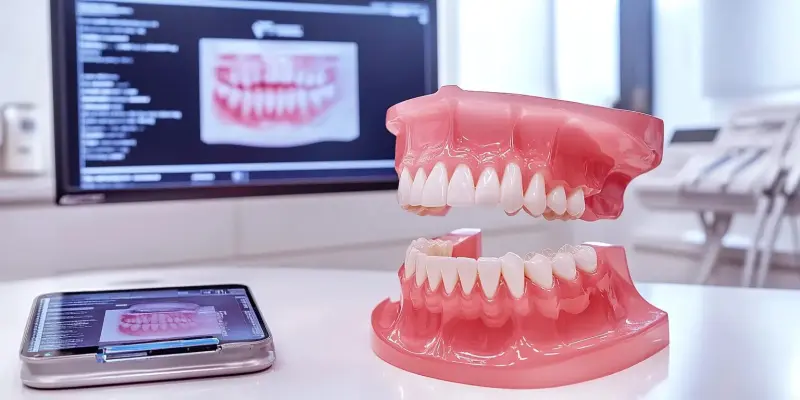Imagine coming into your dental office one morning and discovering that your patient records have been compromised, your system is down, and your reputation is at stake. Cybercriminals have become increasingly sophisticated, targeting various sectors, including dental and orthodontic practices. These attacks capitalize on vulnerabilities within security measures and human error to breach sensitive data. With over 875 million records compromised in 2024 alone, the question arises: Is your dental practice prepared to defend against cyber threats?
Understanding the Importance of Employee Training
Mitigating Human Error
Human error is an often-underestimated factor in cybersecurity, yet it is responsible for over 60% of cyberattacks. Cybercriminals frequently leverage phishing, malware, social engineering, and other tactics to exploit human weaknesses. Employees remain the front line in the defense mechanism of any business, including dental practices. Proper training enables staff to identify potential threats and respond appropriately, significantly reducing risks.
Training must begin with educating employees about a variety of cyber threats they might face. Employees should be well-versed in identifying unsafe browsing practices and recognizing suspicious emails or links. Social engineering tactics that trick individuals into divulging confidential information need to be highlighted. Moreover, recognizing malware that masquerades as legitimate software is crucial. Educating employees in these areas fosters a vigilant team equipped to thwart cyber threats.
Creating a Human Firewall
While technology such as firewalls and antivirus software is essential, it alone cannot fully protect against cyber threats. This is where the concept of a “human firewall” comes into play. By investing in comprehensive training programs for all employees, dental practices can enhance their cybersecurity measures significantly. Customizing training to meet the specific needs of the practice ensures that the information is relevant and practical.
Regular simulated phishing campaigns are a vital tool in this educational arsenal. These simulations allow employees to apply their knowledge in a controlled environment. Phishing tests can identify individuals who are susceptible to these attacks, enabling targeted retraining. Continuous reinforcement through these practical experiences ensures that employees stay prepared for evolving tactics used by cybercriminals. As employees get continuously educated, they become adept at recognizing potential threats, thus creating a more robust human firewall.
Continuous Education and Practical Experience
Importance of Continuous Education
Cybercriminals are constantly adapting and refining their tactics, which makes one-time training insufficient. Continuous education is a critical component of any effective cybersecurity strategy. Employees must receive regular updates on new threats and best practices to counter them. This ongoing education keeps cybersecurity at the forefront of their minds and encourages a culture of vigilance within the practice.
Customizing continuous education to the specific needs and dynamics of the dental practice makes the training more effective. Generic training programs may not address unique challenges faced by individual practices; hence, a tailored approach is beneficial. This ongoing education should involve interactive and engaging content that keeps the employees interested and invested. Ensuring that continuous education is an integral part of the practice helps mitigate the risks associated with ever-changing cyber threats.
The Role of Simulated Attacks
Simulated attacks offer employees invaluable practical experience. Regularly conducted simulations expose employees to potential real-world scenarios in a controlled environment. This practical application of their knowledge is essential for reinforcing training concepts and ensuring preparedness. Equally important is the feedback provided post-simulation, which highlights areas that require improvement and offers targeted retraining as needed.
These simulated attacks can range from phishing emails to potential malware invasions. The goal is to familiarize employees with the various strategies cybercriminals employ, thus reducing the chances of them falling victim to these tactics in reality. Regularly engaging employees in these simulations creates a proactive rather than reactive approach to cybersecurity. It turns theoretical knowledge into practical skills, making employees more alert and prepared to handle real cyber threats effectively.
The Value of Tailored Cybersecurity Programs
Investing in Customized Training
Generic training programs may lack the specific insights needed to address the unique vulnerabilities of a dental practice. Tailored cybersecurity awareness programs provide focused education that aligns with the practice’s particular needs. Customized programs are more engaging and practical for employees because they can see the direct application in their daily roles. Investing in these specialized programs is critical as it leads to better outcomes in terms of preparedness and incident response.
This approach explains why investing in tailored training is worth it, as it reduces risks related to financial loss, business interruptions, and damage to reputation. The programs can address the unique software and tools used in dental practices, which might be targeted by cybercriminals. By understanding these nuances, employees are better equipped to identify and mitigate specific threats. This focused training builds a stronger defense against cyber threats overall.
Financial and Reputational Safeguards
Imagine arriving at your dental office one morning to find that your patient records have been exposed, your system is malfunctioning, and your reputation is on the line. Highly skilled cybercriminals are increasingly targeting various industries, including dental and orthodontic practices. These cyberattacks exploit gaps in security measures and human mistakes to gain access to sensitive information. With over 875 million records compromised in 2024 alone, the urgency to protect your practice cannot be overstated. Cyber threats are real and growing, and they can severely impact your operations, patient trust, and overall business health. Are you confident that your dental practice is equipped to fend off such sophisticated cyber threats? Investing in robust cybersecurity measures and continuous staff training is essential to safeguard your data and maintain your hard-earned credibility in the face of these ever-evolving digital dangers. Preparing now can save you significant damage and loss in the future.

